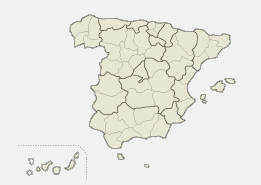- Home
- International Missions
- Mozambique
- Operación India-Mike
ONUMOZ & India-Mike Operation
ONUMOZ
The governing Mozambique Liberation Front (FRELIMO) and the Mozambican National Resistance (RENAMO) signed the General Peace Accords in Rome on 4 October 1992. In response to the agreement, UN Security Council Resolution 797/92 approved a large scale operation, ONUMOZ, involving 7,500 to 8,000 troops.
As one of the participating countries, Spain had up to 21 military observers and 50 civil guards deployed in the country at any one time.
ONUMOZ, which is considered one of the main peacekeeping successes of the UN, was brought to an end after the elections held on 26 and 27 November 1994 led to the formation of a new government.
India-Mike Operation
Torrential rains devastated Mozambique during February 2000, causing hundreds of deaths and displacing 350,000 people. The situation was catastrophic, with a million and a half people at the mercy of flood waters, and it was compounded by the looming danger of epidemics.
The first cases of cholera, caused by a lack of access to clean water, were soon detected. In addition, conditions were ripe for the spread of other diseases such as malaria. Food shortages exacerbated the crisis for the Mozambican population.
On 5 March the Spanish Defence Ministry launched operation India-Mike to provide humanitarian relief to the victims. A medical assistance unit and personnel from the Army Paratroopers Brigade left for Mozambique aboard an Air Force Boeing 707, while a high capacity aircraft transported two helicopters from the Search & Rescue Service and a third from the Army Helicopter Forces (FAMET by its Spanish acronym) to evacuate victims and provide air support to the medical unit. In addition, three Spanish Army C-130 Hercules aircraft landed in the country with medical and military equipment.
The force returned to Spain on 6 April.
ARMY UNITS
- Araba Álava |
- Albacete |
- Alicante |
- Almería |
- Asturias |
- Ávila |
- Badajoz |
- Barcelona |
- Burgos |
- Cáceres |
- Cádiz |
- Cantabria |
- Castellón |
- Ceuta |
- Ciudad Real |
- Córdoba |
- A Coruña |
- Cuenca |
- Girona |
- Granada |
- Guadalajara |
- Gipuzkoa |
- Huelva |
- Huesca |
- Islas Baleares |
- Jaén |
- León |
- Lleida |
- Lugo |
- Madrid |
- Málaga |
- Melilla |
- Murcia |
- Navarra |
- Ourense |
- Palencia |
- Las Palmas |
- Pontevedra |
- La Rioja |
- Salamanca |
- Segovia |
- Sevilla |
- Soria |
- Tarragona |
- Santa Cruz de Tenerife |
- Teruel |
- Toledo |
- Valencia |
- Valladolid |
- Bizkaia |
- Zamora |
- Zaragoza



